Technical Reports Environment
This page lists technical reports of PIARC in the field of environment. These publications are classified chronologically.
-
Road tunnels: vehicle emissions and air demand for ventilation
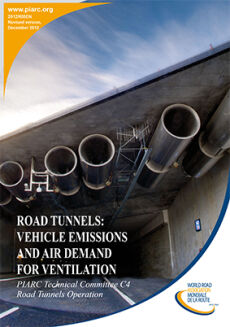
This report presents the data necessary for the design of the ventilation system for road tunnels in normal operation. It aims at defining the minimum quantity of fresh-air that is required to ensure adequate in-tunnel air quality and visibility thresholds. This report is a reference document for the design of tunnels and for monitoring the operation conditions. The report provides the values of admissible concentrations of toxic gases and particulate matter. It then presents the emission factors [...]
-
Monitoring of environmental impacts of roads
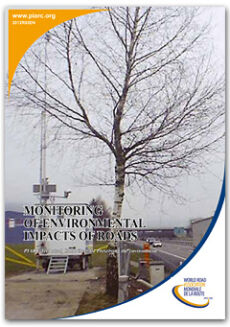
The construction, operation and maintenance of road infrastructures impact the environment in many ways. Monitoring road impacts is essential for the identification of new issues, tracking trends and implementing appropriate mitigation actions. This report clarifies what is encompassed in the concept of monitoring. It is based on the results of a survey of current environmental monitoring practice among different countries and of a literature search. Current practice of monitoring is presented [...]
-
The connected vehicle
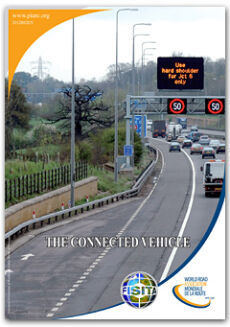
The advent of Intelligent Transport Systems has provided new opportunities for improving the safety and efficiency of the road network. The development of intelligent vehicles, connected by wireless networks to the roadside infrastructure, brings opportunities and issues which are being discussed in this report produced by a joint task force of the World Road Association (PIARC) and the International Federation of Automotive Engineering Societies (FISITA). The connected vehicle is no longer a [...]
-
Adaptation to climate change for bridges
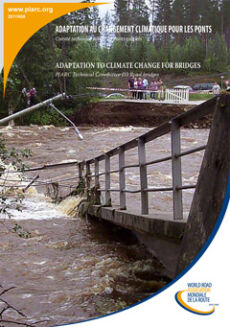
Climate change has now become a global issue of concern and it is for this reason that the World Road Association has incorporated it into the strategic themes for the term 2008-2011. Higher levels of carbon-dioxide as part of greenhouse gas emissions are being released resulting in heat being trapped in the atmosphere, which over time will result in a rise in the earth's air temperature. This rise in temperature will filter into the oceans causing sea water to expand and therefore raise sea levels. [...]
-
The use of monetised values for socio-environmental impacts of road projects
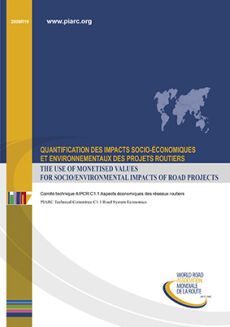
This report presents the current practice of monetising socio/environmental impacts in road project appraisal methodologies. It presents: a synthesis of the responses from 13 countries to an international survey; an overview of the HEATCO study on road project appraisal techniques across 25 countries of the European Union; and compares the findings of this last study with practice in Japan, Australia/New Zealand and on the American continent. The report shows no consistency among the methodologies [...]